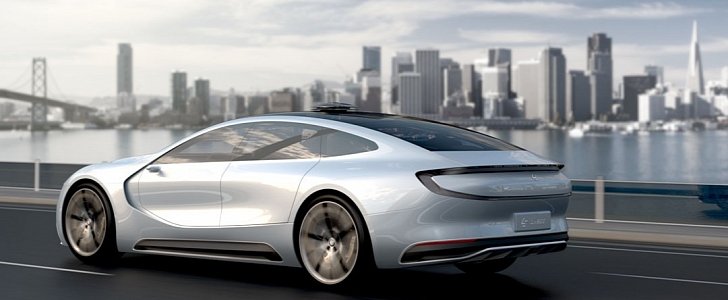If there's one country that could really benefit from a completely emissions-free fleet of vehicles, that has to be China. The problems with the air quality in its bigger cities are already notorious and eliminating the tailpipe pollution could provide some relief.
Like anywhere else, cars aren't the most important sources, but they do add to the problem. Big coal-burning power plants and endless construction sites are much more at fault for the clouds of dust and smog that hang over the country's major urban areas. And yet, China has taken much more ridiculous measures in its attempts to curb pollution, going as far banning all barbecues, for example.
Compared to that, pushing for more electric vehicles on the road would make a much more palpable change, so the Chinese Ministry of Industry and Information Technology is now considering a proposal that seeks to increase the number of zero-emission vehicles sold to 8 percent of all new cars by 2018. The next step would be to increase that percentage to 12 by 2020, Electrek reports.
With roughly 20 million cars sold per year, China is now the world's biggest market. Simple math tells us that if the number remains the same, the Chinese people would have to buy 1.6 million EVs in 2018. That's great, but think about it for a second: where will those EVs come from?
The current global EV production put together couldn't satisfy that demand, and we doubt that much can change in less than two years. It's true, China has its own domestic battery-powered cars, and since they are on the cheap side, the bulk of the sales would probably come from there. But even so, these numbers could still be a little too optimistic at the moment.
And bear in mind China isn't the only country thinking about such measures, so other markets would be vying for more EVs as well. India, for instance, talked about becoming the first 100 percent EV country by 2030, and it even has a plan for it. Holland, one of the most EV-friendly countries in Europe together with those in the Scandinavian Peninsula, had a proposal to ban the sale of ICE-powered cars starting 2025, but it didn't pass.
The most shocking announcement came from Germany, where the country's Bundesrat - a legislative body of all the 16 lands in the country - asked the European Union to think about banning internal combustion engines starting with 2030. The EU thought about it and passed, it's true, but people in important positions all over the world are starting to think about it, and that's a start.
Don't get your hopes too high, though. German magazine Suddeutsche Zeitung says the country's Economy Minister upcoming visit to Beijing will look to bring reassurances for the German car makers who don't have that many EVs (read "barely have any") in their lineups and could be affected by these measures. Still, the most they can hope for is to push the dates a little before their electric models start showing up.
Compared to that, pushing for more electric vehicles on the road would make a much more palpable change, so the Chinese Ministry of Industry and Information Technology is now considering a proposal that seeks to increase the number of zero-emission vehicles sold to 8 percent of all new cars by 2018. The next step would be to increase that percentage to 12 by 2020, Electrek reports.
With roughly 20 million cars sold per year, China is now the world's biggest market. Simple math tells us that if the number remains the same, the Chinese people would have to buy 1.6 million EVs in 2018. That's great, but think about it for a second: where will those EVs come from?
The current global EV production put together couldn't satisfy that demand, and we doubt that much can change in less than two years. It's true, China has its own domestic battery-powered cars, and since they are on the cheap side, the bulk of the sales would probably come from there. But even so, these numbers could still be a little too optimistic at the moment.
And bear in mind China isn't the only country thinking about such measures, so other markets would be vying for more EVs as well. India, for instance, talked about becoming the first 100 percent EV country by 2030, and it even has a plan for it. Holland, one of the most EV-friendly countries in Europe together with those in the Scandinavian Peninsula, had a proposal to ban the sale of ICE-powered cars starting 2025, but it didn't pass.
The most shocking announcement came from Germany, where the country's Bundesrat - a legislative body of all the 16 lands in the country - asked the European Union to think about banning internal combustion engines starting with 2030. The EU thought about it and passed, it's true, but people in important positions all over the world are starting to think about it, and that's a start.
Don't get your hopes too high, though. German magazine Suddeutsche Zeitung says the country's Economy Minister upcoming visit to Beijing will look to bring reassurances for the German car makers who don't have that many EVs (read "barely have any") in their lineups and could be affected by these measures. Still, the most they can hope for is to push the dates a little before their electric models start showing up.

